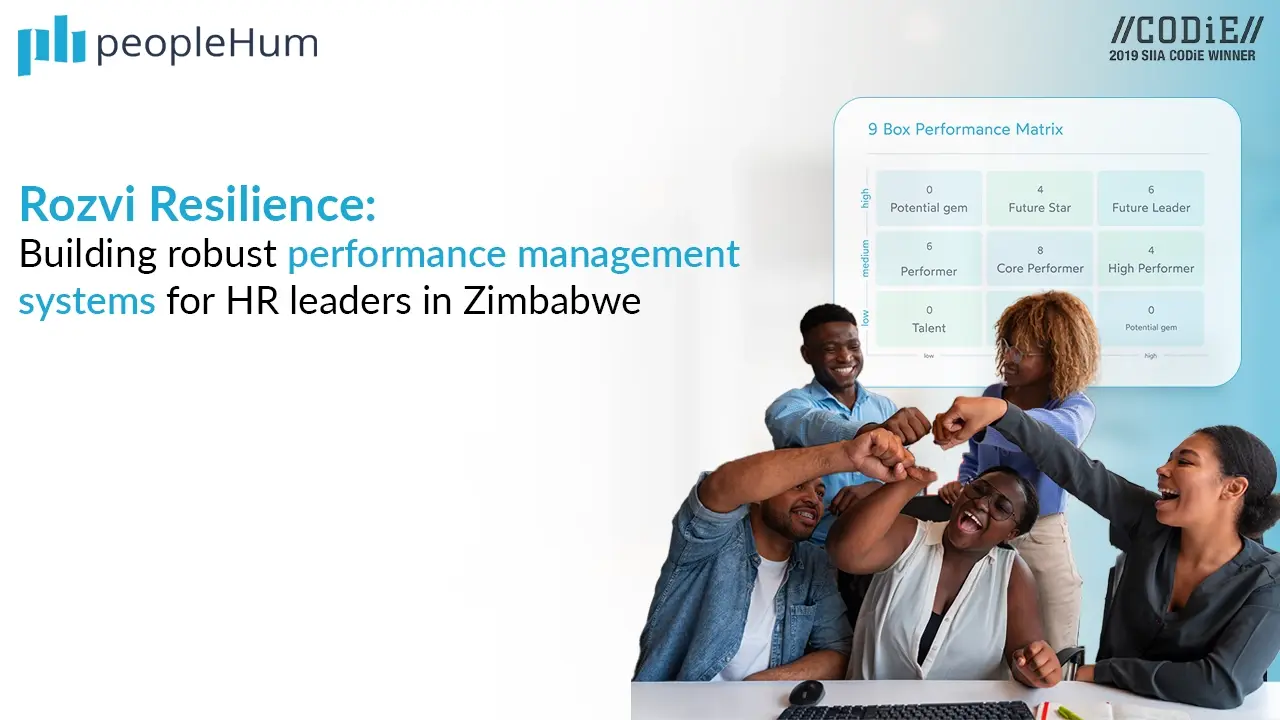Objectives and Key Results (OKRs) are beneficial vertically i.e. for every level in the organizational hierarchy and horizontally i.e. across a plethora of areas and skills. With OKR softwares being increasingly used in place of OKR spreadsheets, more companies have adopted this method of goal-setting than ever before.
Automated OKR tools are not just easy to use but also uphold confidentiality and record progress accurately. Several multinational organizations have come to implement this strategy to aid their company objectives and monitor individual employee and teams' performance.
Let’s look at the five most-famous organizations that have incorporated this framework, which in turn has led to their global success! Before we dive into the benefits of using OKRs", let's look at examples of major giants than have adopted them.
Companies using OKR management platforms for goal setting
There are many companies which have successfully adopted OKR management platforms and modified them based on their organizational needs and industry trends. The top-five names are -
1. Intel
Andrew Grove was the CEO of Intel in 1968. Often known as “The father of OKRs”, the Eureka moment of this framework first came to this mastermind! Unsurprisingly, Intel was among the first few companies to adopt OKRs, which were based on Peter Drucker’s MBOs i.e. Management by Objectives. Using the OKR framework successfully transformed Intel's business, which raised it to great heights!
2. Google
Way back in 1999, when Google was just a one-year old startup, they were introduced to the concept of OKRs. Shortly after this, Google began implementing it. Today, Google’s OKRs are a lot more popular than that of Intel’s despite Intel being the first to introduce them.
Google also ranks as the #1 successful company thanks to the OKR software. But why is it that Google got more appreciation and recognition than Intel? Did they do anything different? How did they achieve what they did?
Turns out, Google just shortened the OKR cycle. Instead of making it annual, they made it a quarterly process. Another aspect for which they are lauded is that they did away with the concept of cascading goals in a top-down manner and ensured that it was made bottom-up.
Lastly, the OKRs were made public to everyone in the organization back when the concept was in its nascent stage.
By getting employees to write their own OKRs, Google was the one who got individual targets and organizational goals to align. This practice not only helped them to focus better on their objectives but also promoted collaboration at work. In other words, it can be said that the concept of OKRs was born in Intel but was developed to fruition in Google!
3. Twitter
At Twitter, Objectives and key results were used as a tool to measure progress, communicate with other teams in the organization and exhibit to the authorities the objective to be accomplished.
4. LinkedIn
LinkedIn was the next organization in line to adopt the quarterly OKR cycle. Doing so led the higher-ups to constantly be abreast of the company’s progress. This resulted in them adopting suitable strategies to address issues that arose.
5. Microsoft
Bill Gates suggested OKRs for everyone who really wanted to become a better manager. By using it as a tool to motivate employees to excel at work and improve performance, OKRs had a profound impact on Microsoft’s management style. Even today, Microsoft achieves better results and executes strategies more efficiently through this goal-setting methodology.
From all these OKR examples, it is clear that Objectives and key results make their mark in organizational success. By measuring what really matters, this framework contributes to long-term company success by aligning purpose, vision and mission. Some other companies using OKRs are Gap, GoPro, Spotify, LG, Dropbox, Samsung, Uber, Yahoo etc
How have companies taken advantage of the benefits of using OKRs?
Following the SMART goal setting framework i.e. specific, measurable, achievable, relevant and time bound, the benefits of using OKRs are flexible yet powerful. The strategy has unequivocally been lauded as a "future-ready” technique that would constantly reinvent and ameliorate itself till it becomes too good to be true!
Are you ready to be blown away with what OKR users - both OKR spreadsheets and OKR management software have to say about the framework?
OKRs is a visionary tool as referred to by many, since it focuses on team output and transparency. It also helps individuals and organizations visualize their Objectives and Key Results to be achieved. Auto-tracking progress of the individual, team and organization is a boon with OKR softwares.
Available at affordable prices, most OKR softwares make teams ready by syncing data with every progress entry! Most OKR softwares offer mobile applications for Android, iOS and Windows devices, making it easily accessible across geographies and portable with COVID-19 remote work!
“Having goals improves performance. Spending hours cascading goals up and down the company, however, does not. It takes way too much time and it’s too hard to make sure all the goals line up. We set ourselves the goals we know we can’t reach yet because we know that by stretching to meet them we can get further than we expected.” - Laszlo Bock, Google’s former Vice President of People Operations.

Are OKRs related to compensation?
Although OKRs bring out the best in employees that could result in compensation or an incentive, the goal of OKRs isn’t to achieve monetary gains. It is to excel as a person, an employee and a human being at work.
It is primarily oriented towards stocking ourselves with relevant skills, collating knowledge from all fronts and using these aspects to better work performance. Compensation, although not mandatory, might result as a consequence and is a bonus achievement for the employee and lies outside the ambit of OKRs.
It is often said that OKRs need to be divorced from compensation policies because of several reasons. Using OKRs as a “carrot” or “stick” in performance evaluations to achieve the end goal of incentive defeats the purpose of OKRs itself that is inclined to collective commitment.
It is also toxic to relate an employee’s OKR to his overall performance across various spheres. In other words, by giving a blanket statement, “By failing to set your OKRs, you are failing as an employee” would be too harsh and unjust. Both behaviour i.e. attaching OKRs to monetary terms or generalising an employee’s capabilities would encourage sandbagging at work and would force employees to see OKRs merely as an administrative tool.
“OKRs should be just one input used to determine how well an individual is doing.” - Andy Grove, Intel’s former CEO
OKRs should not be a decider but should be an input into holistic performance conversation. According to Laszlo Bock, OKRs amount to a third or less of performance ratings. They take a backseat to feedback from cross-functional teams and same-team members. Decoupling OKRs from compensation and performance evaluation encourages audacious goals and drives people to think differently and achieve higher results.
It is important to understand and analyze why we have bonuses in the first place. The two main scenarios that lead to compensation are
- When the company does well
- When the individual employee does well and their responsibilities drive positive results.
However, none of these are necessarily reflected on OKRs. Don’t follow what we mean? Here are some examples -
In the first case, a particular team may have achieved their goal and hit their target. But if the marketing team did not perform as well by getting new leads, the company may not have done well in the bottom line results. Here, although individuals achieved their objective, due to external factors, their OKRs did not serve the purpose of aligning team goals with organizational targets.
In the second instance, achieving or not achieving OKRs may not be a precise indicator of an individual’s performance in totality. An employee may have gone beyond her responsibilities, worked perfectly and swiftly, even contributed to the team with novel ideas. But if those didn’t interest the customers, key metrics won’t change and employee OKRs would plummet drastically.
There are three main issues that come to light when OKRs and compensations are linked. They are -
1. Understated targets
With the focus solely being on the compensation, objectives that are self-allocated by employees may not be aspirational. In order to reduce the probability of not getting the compensation, targets set could be easily achievable. Over a period of time, an employee would end up with a list of trivial tasks for OKRs that are used only to get their bonuses!
2. Overstated accomplishments
As a consequence of the previous problem, when employees begin to lower their targets, they still need to give the impression to the higher-ups that they are high-achievers by justifying their contribution to the organization. This would lead to workers overstating their company-wide impact. The entire culture of the organization would be compromised since values like honesty, trust, confidence would be non-existent. Lastly, for people who do play such games, it takes a lot of planning, mental effort and energy, which in turn lessens their focus to do the work at hand.
3. Low collaboration
When employees are evaluated and compensated solely based on the percentage of accomplishment of their goals, they have no incentive to work with others in the organization. Collaboration becomes a thing of the past as the organization moves from having a collective mindset to an individual mindset. Soft skills like being a team player, communicating, negotiating, co-operating, etc. are not learned in this process!
"OKRs are not synonymous with employee evaluations. OKRs are about the company’s goals and how each employee contributes to those goals. Performance evaluations – which are entirely about evaluating how an employee performed in a given period – should be independent from their OKRs" - Rick Klau, Senior operating partner at Google Ventures
What makes OKRs work?
Objectives and Key Results work because they solve the main problem with goal setting i.e. ambiguity. With OKRs, be it on spreadsheets or OKR softwares, everyone understands what they have to do, what others have to do, and how everyone’s individual tasks help them move forward as a team.
Other aspects that set OKRs apart are that they focus on alignment, transparency and purpose by being a bottom-up goal-setting approach. The philosophy behind OKRs is that if the company is always reaching 100% of the goals, they are too easy.
It is the driving factor of the organization that pushes the company to do better than before by going the extra mile. The fact that targets are bold and ambitious, challenges teams to rethink and upskill themselves to reach peak performance levels consistently. It also enlightens every employee on why they are doing what they are doing with the description of individual employee OKRs.
Descriptions give basic information on why that objective is important, a summary of alignment and 3-5 Key Results that will help them achieve that goal.
Another reason why OKRs are so often successful is because it is rooted in the human psyche. It is due to this that the framework has subtle yet powerful and long lasting impacts on productivity levels.
The key to the success of OKRs is that they take the underlying principles that motivate human behavior and organize goals, making us more productive. The connection that employees experience when working with OKRs makes them feel that values matter and this culminates in successful goal accomplishment! The three psychological-driven reasons for the success of OKRs are -
Tapping into trust
Lack of trust is one of the silent killers of workplace productivity. Research has shown that having a sense of higher purpose stimulates oxytocin production, which leads to being more trustworthy. The reinforcement of purpose and trust over a long period of time raises oxytocin production so much so that happiness, motivation and satisfaction become commonplace, enriching employees' workplace experience and retention.
OKRs can produce a culture of trust by making goals explicit and giving team members the resources to drive those goals forward. By creating an atmosphere where everyone has a say in setting their goals, freedom is a given that in turn leads to employees achieving goals by being responsible and accountable for their actions.
Fostering team focus
Communicating the organization’s vision to the team results in a need for the latter to engage in actions synchronized with the former. It’s impossible to have a high performing team without instilling focus around a set of shared goals. OKRs help managers in creating focus, act as a backbone of the team and form the base of the organization on which the company finely balances.
Safe space provided to express ideas and experiment
Psychological safety is a shared belief by members of a team implying that the atmosphere of the team is safe and accepting of interpersonal and intrapersonal risk-taking. Although it has no direct effect on productivity levels, it makes working comfortable for employees that in turn shape their thought processes in the right direction.
In other words, it indirectly has an effect on employee goal-accomplishment by fostering a healthy, learning behavior in the team. This ability to develop new capabilities as a group makes individuals more effective, which later has an effect on team productivity and organizational success!
Conclusion
There’s so much to talk about the benefits of using OKRs, we can’t get enough. But we really need to put an end somewhere! This exhaustive framework has resulted in multinational companies’ successes and will undoubtedly strive to do so in the future of work. Did you realize that there are barely any cons to OKRs? Power-packed with features that are here to stay, the technique has even adapted to changing times in the form of OKR softwares.
Constantly reinventing itself to connect the humanneness in us with the digital world of automation, OKR has gone far and beyond to bind man and machine together. True to its word, the OKR framework has achieved its goal in being THE ONLY STRATEGY that guarantees you bountiful results. It’s now time for you to prove your achievement to OKRs!































.webp)



.webp)














